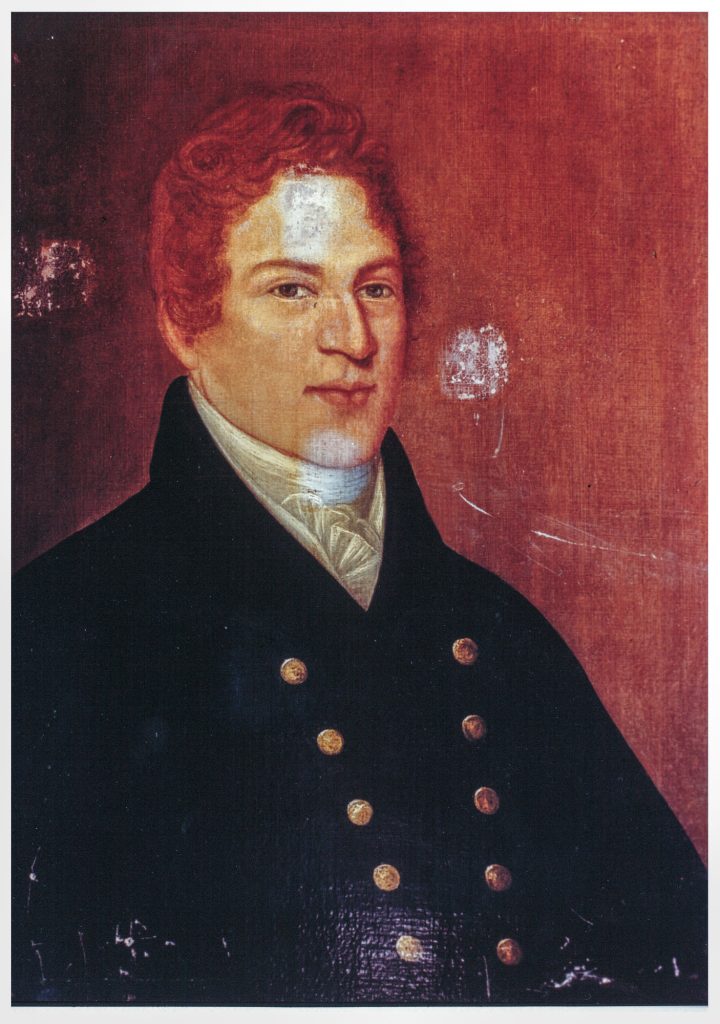Jonas Phillips Levy was the youngest of ten children born to Michaeland Rachel Phillips Levy. Raisedin Philadelphia, his siblings included Benjamin and UriahLevy. His maternal grandfather, JonasPhillips, for whom he was named was a veteran of theRevolutionary War.
LikeUriah, the younger Jonas would spend several years pursuing anadventurous life—much of it at sea—but unlike his older brother,who would become the first Jewish commodore in the US Navy, Jonas’adventures had rather more mixed results, and his life can often readlike a series of frustrations. At sixteen, he signed on as a cabinboy aboard the schooner Sygnet, on its way to New Orleans, andin the following years he worked on numerous merchant ships andsteamboats.
He sailed in and out of ports throughout South and North America inthe 1820s and 30s, survived an attack near Tierra Del Fuego, andreceived Peruvian citizenship in appreciation for the assistance heprovided to the Peruvian Navy. He saved some money, and in 1836 setup a store in New York, but a year later his warehouse burned down,resulting in significant losses.
Thefollowing year he moved to New Orleans, again establishing himself asa merchant, but by 1843 he had declared bankruptcy. Later that year,Jonas moved with his brother Morton to Tabasco, Mexico, seeking hisfortunes there. With the outbreak of the Mexican American War, in1846, the Mexican government seized much his property. By year’send, he had been ordered to report for service, and Levy purchasedthe transport ship American, which he commanded transportingtroops to Veracruz. Following the surrender of the city, GeneralWinfield Scott appointed Levy the port’s captain.
Hesoon left, however, returning to the United States, and that Novembermarried Frances Mitchell. The couplethen returned to Veracruz, where their first child, Isabella, wasborn two years later. By 1852, they had settled back in New Yorkwhere they would raise their five children. Levy spent much of therest of his life pursuing claims against the American government forlosses and expenses incurred during the war. His legal proceedingscarried on into the 1870s, but he was ultimately unsuccessful.
Hisson Jefferson Monroe Levy would, a financier and lawyer in New York,at twenty-seven, in 1879, took control of Thomas Jefferson’shistorical home, Monitcello, which his uncle Uriah had purchased in1834. Like his uncle, he invested vast amounts of his own money inthe preservation and restoration of the property, which in 1923 hesold to the Thomas Jefferson Foundation.
